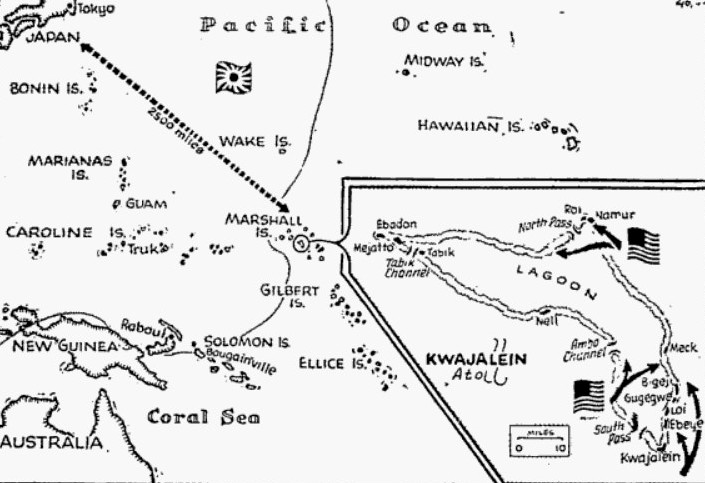
Pennsylvania politics –
Myers, Davis likely to be November foes
Neither is expected to have opposition in April primary
By Robert Taylor, Pittsburgh Press staff writer
Harrisburg, Pennsylvania – (Feb. 5)
The harmony program ratified here by the Democratic State Committee has forecast a race in the November election for U.S. Senator between Rep. Francis J. Myers, Philadelphia New Dealer, and Senator James J. Davis, seeking election to a third full term, as the Republican nominee.
Mr. Myers is assured the Democratic nomination in the April 25 primary by the withdrawal of all opposition just before the State Committee endorsed his candidacy yesterday, and he will run on a ticket headed, Democrats confidently expect, by President Roosevelt.
May avoid primary contest
Failure of Republican leaders to settle on a candidate to oppose Senator Davis in the primary, with the backing of Joseph R. Grundy and Joseph N. Pew Jr., left political circles believing that they may not give Mr. Davis serious opposition in the primary.
The proposal not to put organized opposition in the field against the veteran Republican Senator, who has been on unfriendly terms with the Grundy-Pew leadership for years was credited to Governor Edward Martin.
If this change in Republican plans materializes, both parties will avoid a contest in the primary election and will keep their ranks intact for the presidential election.
Democrats jubilant
For the Democrats, it will be the first harmonious primary since 1936, due to healing of the political breach between Senator Guffey and State Chairman David L. Lawrence, which has kept party affairs in a turmoil since 1938.
For the Republicans, it would be the first time since 1930 that Mr. Davis has sought a senatorial nomination without encountering a determined attempt by the party organization to defeat him.
Democrats were jubilant today over the outcome of the harmony program by which they named, virtually unopposed, a state slate to serve as a “supporting cast” to the President in the November election.
All seasoned campaigners
Each of the slated candidates is a seasoned campaigner. Rep. Myers, a 42-year-old Philadelphia attorney, is a third-term Congressman. U.S. Circuit Judge Charles Alvin Jones of Pittsburgh, designated candidate for the State Supreme Court, was the party’s 1938 nominee for Governor.
Superior Court Judge Chester H. Rhodes, originally elected in 1934, was designated a candidate for one of two Superior Court posts and his running mate, F. Clair Ross, has been elected State Treasurer and Auditor General and was the Democratic nominee for Governor in 1942.
Call on Roosevelt
Third Assistant Postmaster General Ramsey S. Black, slated for the nomination for State Treasurer, has been active in politics in Central Pennsylvania for years and G. Harold Wagner of Luzerne County, slated for Auditor General, was elected State Treasurer four years ago.
Speakers at the Democratic State Committee meeting set the keynote of the campaign as “victory and a just and lasting peace,” and the committee adopted a resolution demanding that President Roosevelt “carry the burdens of his great tasks until the war is won and a secure peace assured.”
Home front issues
Mr. Lawrence told the assembled committee:
He must continue his masterly direction of the war, because the plans that are shaped are his, the men that direct are his, the team that is winning is his, and no other man could take over in the middle of the game and call the plays correctly and without a hitch.
The Democratic leaders didn’t forget home front issues in marking out the terms on which they will fight the campaign. The committee adopted a resolution denouncing Pennsylvania’s Republican Congressmen for opposing a “stand up and be counted” roll call on the federal soldier ballot bill and urged approval by Congress of a soldier ballot.
Mr. Lawrence charged Republican Congressmen with fighting price control and boosting inflation on behalf of pressure groups and against the interests of labor.
He said:
The fight against food subsidies has been a Republican fight to raise the cost of living of the city dweller to curry favor with the organized farm bloc. Then, when labor felt the pinch of rising living costs, Republican politicians would point to the wage control agencies of government and tell working people that the Roosevelt administration has turned against them.
Labor represented
As in previous presidential years, labor will be represented on the Pennsylvania slate of delegates at large to the national convention, to serve with the state’s leading Democrats.
Philip Murray, CIO and United Steel Workers president, and James L. McDevitt, president of the Pennsylvania Federation of Labor (AFL), were designated as delegates at large, and John A. Philips, president of the Pennsylvania Industrial Union Council (CIO), as an alternate. Mr. Black, designated for the state treasurer nomination, is a former railroad worker with widespread support among rail unions.

